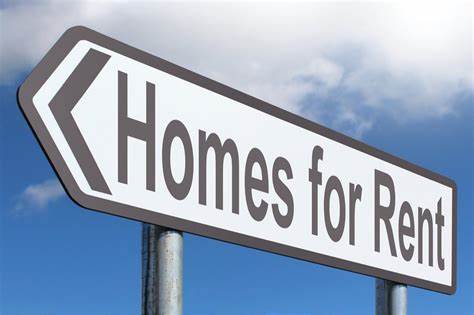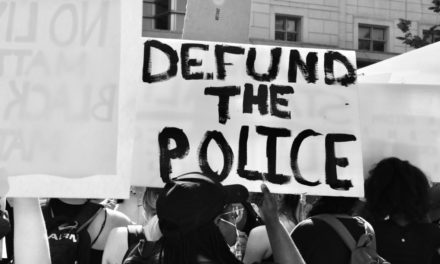In just a two-year period – 2019-2020 – more than 7,000 single-family houses in Memphis were purchased by out-of-town investment groups and hedge funds from New York and California but also China and Saudi Arabia.
It was a fire sale unlike anything in comparable cities with Zillow saying that it had transformed Memphis into the fastest-growing rental market in America. In a span of seven years, the number of non-owner-occupied mortgage loans increased more than 300%.
And the best news for these Wall Street investors is that they will get a tax break in our community when their properties are assessed as residential rather than commercial.
As out-of-town investors gobbled up Memphis houses, it drove the percentage of owner-occupied homes down to 46%. The national average is 65%. According to Census Bureau, Memphis now has 117,100 homeowners and 137,500 renters.
International Conglomerates
The results of these whale investors leave many neighborhoods in their wake and worried what the conversions to rental proprieties will mean to them. Memphis neighborhoods are replete with stories of absentee owners who have only a passing interest in the areas where they have bought homes, whose tenants display disregard as fences fall down and lawns go unmown, or become what Memphis journalist and blogger John Branston on this site called “mystery houses.”
In large measure, it’s why a community-based organization like MidtownMemphis.org is so visceral in its criticisms of Memphis 3.0, the first city comprehensive plan in 40 year. It is their concern that the plan will sacrifice their neighborhood’s quality of life on the altar of multi-family development – apartments, duplexes, and quadplexes.
As Robert Gordon, MidtownMemphis board member, put it: “If the (Memphis 3.0) map supports what they are suggesting, then Midtown will be owned by international conglomerates who don’t give two hoots about Midtown Memphis and what it looks or feels like.”
City planners say the neighborhood advocates are wrong and simply don’t understand the plan and its philosophy.
Taking that position is a hill Memphis 3.0 will die on, because telling the public it doesn’t understand the planning jargon and philosophy is an inevitable political and public relations defeat.
Memphis Needs Limits In Place
The thing is these folks defied odds to preserve, conserve, and protect their neighborhoods in the first place. It wasn’t easy and from that experience, they understand how fragile their neighborhoods can be, even as we tour them with out-of-town visitors and politicians who marvel at their health and vitality.
Hopefully, there will be middle ground where the planners and neighborhoods can converge. It’s not like chief planner John Zeanah doesn’t understand that Memphis 3.0 cannot – must not – be a detriment to Memphis neighborhoods fighting against so many challenges so its residents remain in the city when so many are leaving.
As Mr. Gordon rightly pointed out, the large-scale purchases by conglomerates are a threat to so many Memphis neighborhoods. It’s precisely why at least half a dozen states are considering ways to limit the number of properties owned by large corporations.
In Atlanta, large investors own more than 70,000 single-family rentals in metro Atlanta, or 28% of the single-family rentals. The legislature is considering the Protect the Dream Act which would bar home sales to businesses that already own more than 25 homes in a single county or have more than a certain amount in assets.
Its chief backer, state Rep. Phil Olaleye sums in up well: he said that increasing consolidation of the single-family rental market by a few companies puts more people at risk of eviction, undermines social cohesion in community, and can create “a generation of renters” who don’t benefit from the wealth-building that comes from home ownership.
Exploitation as Memphis Tradition
As for Memphis, it can’t seem to catch a break. It is tossed from one wave of exploitation to another.
The subprime epidemic left the city staggering and ushered in the sharks who snatched up houses like it was a bargain table at Macy’s.
Memphis housing expert and Rhodes College professor Austin Harrison writes that the first subprime loan boom took place in the 1990s and targeted older African Americans, followed by more reckless lending in the 2000s which led to a housing boom but also the crash of 2008.
Then came COVID-19 and one in five renting Memphians faced eviction, resulting in more than 30,000 eviction filings each year and acting as a profit center for corporations who regularly receive their rent and penalties along with it.
It’s clear that the factors and causes that produced a troubling trend line and crisis after crisis are complicated, so we’ll leave that to an expert like Mr. Harrison. In and effort to keep things simple, the State of Memphis Housing 2020 cited four factors: 1) the rise of mortgage market deregulation leading to the “innovation” of the subprime mortgage loan product; 2) target of subprime loans in predominantly African American neighborhoods; 3) the relationship between foreclosures and vacant properties; and 4) the increase in real estate owned by large national banks and other lending institutions or previously foreclosed homes did with these houses after the crisis.
With foreclosure, many, many of these kinds of properties were sold to large private equity owners interested in using them as rental properties, ushering in Memphis’ crisis in rental housing with nearly half of its households home-burdened.
To its credit, the administration of Mayor Paul Young has treated the city’s Affordable Housing Trust Fund more seriously than his predecessor. Last year’s budget contained $5 million for the trust fund and this year’s budget has $3.6 million. However, the projects funded by the trust fund give neighborhoods cold comfort since they have largely gone to multi-family projects.
Turning Memphis Into A Rental City
But I have digressed badly. The topic for this post is the big Wall Street investment funds that own thousands of houses in Memphis.
And while their purpose and actions couldn’t in practice and purpose be more commercial, their properties are assessed by the Shelby County Assessor at the residential rate of 25%. The commercial rate is 40%.
For example, Cerberus Capital Management likely owns more than 1,800 single-family homes in the city. Its property manager, FirstKey Homes, has a record of filing evictions at twice the rate of other rental home property managers in our region. Meanwhile, its properties rack up property code violations at a consistently higher rate than other single family rentals.
The Washington Post wrote in 2018, “No major city has suffered a bigger percentage drop in owner-occupied single-family housing than Memphis, partly the result of predatory mortgage lending giving way to a flood of foreclosures. Now, many of these homes are owned by investors, including Cerberus, a firm specializing in distressed assets that takes its name from the mythical hound guarding the gates of the underworld.”
Memphis is essentially a magnet for the Wall Street landlords club. It has low-cost housing (half the average price of Nashville, for example), it has a low assessment rate, and it has low-income residents who are considered opportunities for exploitation more than as renters.
Assess Them At A Commercial Rate!
Shelby County Assessor Melvin Burgess says he would like to assess the houses owned by these large investment firms at the commercial rate, but his office does not have that discretion.
That’s why he’s pushed for the latitude in a bill with the Tennessee Legislature, where it gets bottled up with the Republican super-majority. After all, these big investment entities have money to pay for lobbyists and to make political donations.
That said, there is a school of thought that says Mr. Burgess should not wait for permission and he should go ahead and assess the properties as commercial. Make them file lawsuits and force them into the light and make them defend their business practices. After all, if Memphians have to pay a commercial rate for a leased car, why should these business behemoths get a break?
It would certainly matter to local government’s bottom line. The assessor’s office said he has not done this kind of calculation to determine specific benefit to local government. For example, being conservative, if these big investment firms still only own 7,000 single-family houses and the average appraisal is$150,000, and if they were assessed at a commercial rate, it would mean $5,032,790 in new revenue for City of Memphis and $5,339,250.
That would be a total of $10.4 million in new revenue from companies that have been a blight on our community.
It’s the least they could do.
**
These commentaries are also posted on the Smart City Memphis Facebook page and on Instagram along with occasional articles, reports, and commentaries that are relevant to Memphis.





